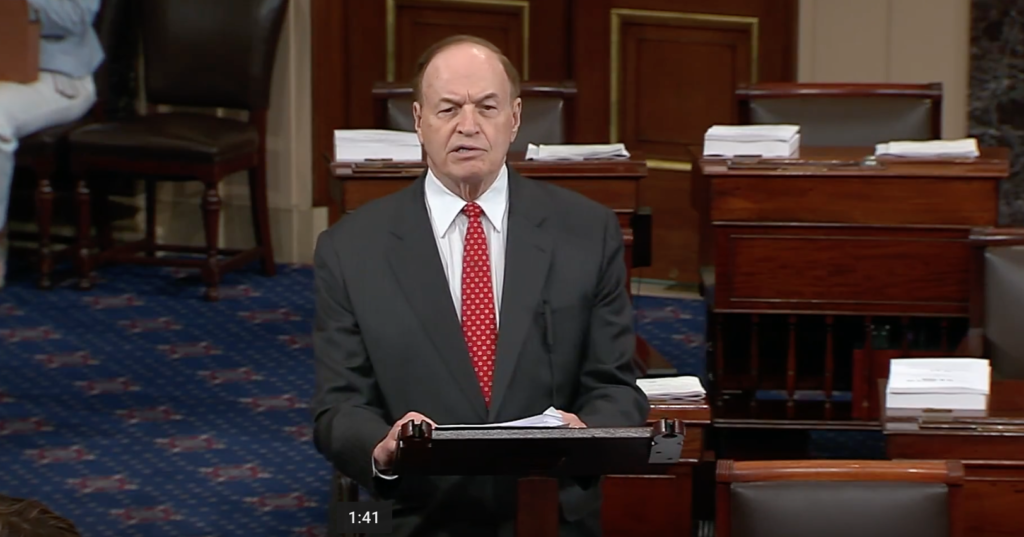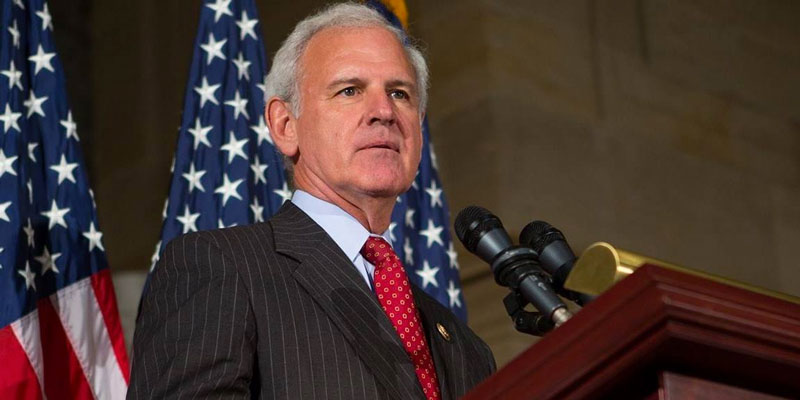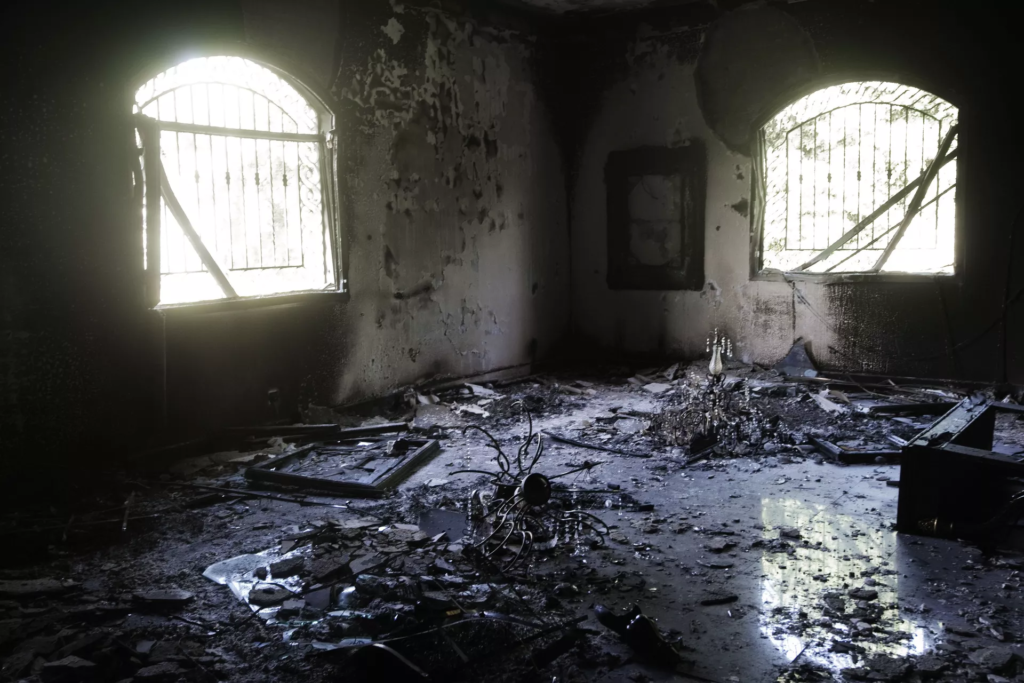Pentagon misses deadline for barracks privatization report

By Brett Rowland | The Center Square The privatization feasibility report was required as part of the National Defense Authorization Act for Fiscal Year 2023, which provided $838.8 billion in military funding to the Pentagon. It was due in July. But Elizabeth Field, director of Defense Capabilities and Management for the Government Accountability Office, told the House Armed Services Committee panel that the Department of Defense has yet to provide a timetable for completing the report. “We could not get any clear information from the department on when it will be delivered,” she said. Most other military housing in the U.S. was privatized over the past three decades. In the mid-1990s, the Department of Defense worried that inadequate housing was one reason people were leaving the military. Congress passed the Military Housing Privatization Initiative in 1996. That gave the Pentagon the authority to use private-sector financing and management. Since then, the private sector has taken over about 99% of military family housing in the U.S. By contrast, the Army and Navy have seven privatized barracks projects, according to the Government Accountability Office report. The rest of the barracks are owned and operated by the military services. Those living in privatized barracks “consistently told [the GAO] they were satisfied with the condition of their housing,” according to the Government Accountability Office report. Problems with privatized military housing have been reported as well, including poor housing conditions, according to previous Government Accountability Office report. “A few years ago, we saw similar conditions in private family military housing,” U.S. Rep. Don Bacon, R-Neb., said. “Families dealt with long delays in repair and maintenance requests or requests that were not responded to at all, children were getting sick from mold and lead paint, and members feared retribution from private companies if they complained to their command. This situation required extensive Congressional action to make improvements to these conditions.” Previous efforts to evaluate the feasibility of privatizing barracks weren’t comprehensive or “sufficient for decision-making,” according to the most recent Government Accountability Office report. “From 1997 to 2011, the services conducted several assessments of the costs and suitability of privatization as a financing method for their housing needs for unaccompanied personnel,” according to the report. ” … Because the military services used different methods, such as business case and life-cycle cost analyses and different assumptions about how repairs and upkeep for housing would be funded, the services reached different conclusions about the potential for cost savings from using either privatization or the traditional government-funded military construction approach.” The Army concluded that privatization was feasible, but more costly in most cases. The Navy concluded that privatization was feasible in certain locations. The Air Force and Marine Corps concluded that privatization was “not desirable for housing unaccompanied personnel,” according to the report. But privatization hasn’t gone away. Officials from the Office of the Secretary of Defense told the Government Accountability Office “they found the idea of privatizing barracks appealing but also had questions about the feasibility of doing so.” The U.S. Department of Defense missed a deadline to provide Congress with a report on the feasibility of privatizing barracks. A U.S. Government Accountability Office director highlighted the importance of the report and the missed deadline at a House Armed Services Committee panel hearing that detailed health and safety problems at military barracks, including sewage backups, mold, rodent infestations, and inoperable fire safety systems. Conditions were so bad in some places that service members sometimes took “drastic action, such as getting married, just to leave the barracks,” according to the report. Hundreds of thousands of U.S. troops live in barracks, which are for the most junior-ranking unmarried service members without children or other dependents. Republished with the permission of The Center Square.
Coast Guard members still fighting vaccine mandate encouraged to consider joining class action lawsuit

Members of the U.S. Coast Guard who sought a religious accommodation request (RAR) from the U.S. Department of Defense COVID-19 vaccine mandate and were denied are encouraged to consider joining a class action lawsuit filed by Thomas More Society. The Chicago-based nonprofit legal organization filed a class action lawsuit against the Coast Guard, Stone et al. v. Mayorkas, et al. in the U.S. District Court for the Northern District of Texas on September 16. The lawsuit challenges the Coast Guard’s broad denial of RARs to the DOD mandate. The plaintiffs are facing involuntary discharge because they argue they are being forced to take an experimental drug that was developed with or tested on aborted fetal cell lines, which they argue violates their religious conscience and is contrary to their faith. According to court filings, the Coast Guard hasn’t disputed the sincerity of their religious beliefs, it’s just issued across-the-board denials of their RARs. The Department of Defense continues to maintain that the mandate is necessary for military readiness and that U.S. district court judges don’t have jurisdiction to oversee military policy. In several cases in several jurisdictions, all federal judges have disagreed with the DOD’s position, each handing different military branches ongoing losses in court. A DOD Inspector General also found that U.S. military officials in all branches violated federal law by issuing widespread denials of RARs. Still, the U.S. Coast Guard issued a memorandum to initiate separation proceedings to active duty and reserve members who refused to take the vaccine and who filed an RAR that was denied. One plaintiff in the class, Alaric Stone, says he’s suing because he joined the Coast Guard because of his faith and “Now I find myself in a situation where I am being forced to choose between my faith and service to my country; it’s truly heartbreaking. “I took an oath to uphold and defend the Constitution, and religious freedom is a cornerstone of our Constitutional guarantees.” Two weeks after TMS filed its class action lawsuit, the Coast Guard agreed to defer its Inactive Status List transfer date to December 1 for all 122 putative class member reservists who’d been given an October 1 transfer date. The agreement will give them temporary relief, including allowing them to continue receiving an income while the court considers pending motions in the case. TMS Senior Counsel Stephen Crampton notes it’s only temporary and only applies to a few out of many in dire situations. “We continue to hear every day from additional service members facing imminent discharge or transfer orders,” Crampton said. “These agreements with the Department of Justice underscore the serious and irreparable harm that Coast Guard service members continue to face and point to the need for court- The Coast Guard “has made threats, and carried out threats, to punish service members” who apply for RARs, including denying them schooling, promotion, and assignments, he said. They’ve been “formally reprimanded and threatened with involuntary discharge,” even after the latest Centers for Disease Control prevention guidelines were issued, “which recommend no longer differentiating based on a person’s vaccination status, Crampton said. TMS also notes that while the Coast Guard has insisted on “forcing these brave and principled service members out,” it’s also acknowledged that “it faces an urgent shortfall in personnel and recruiting. “The actions of both the government and the Coast Guard in this situation are ridiculous as well as illogical,” Crampton said. The United States Supreme Court recently ruled that denying RARs due to “speculation” and “conjecture” about hypothetical future harms, another argument used by the DOD and military branches to enforce the mandate, violates the Religious Freedom Restoration Act and the First Amendment. In order to accommodate the increasing number of service personnel in need of legal assistance who continue to be impacted by the Coast Guard’s refusal to approve RARs, TMS created a portal for service members to use to be considered to join its class action lawsuit. The portal states, “If you are a member of the Coast Guard who sought a religious exemption to the COVID-19 vaccine mandate, we encourage you (but you are not obligated) to fill out the form on this page. If you have received a specific date of discharge or date of transfer to the Inactive Status List (ISL), please specify.” The class action names Secretary of the Department of Homeland Security Alejandro Mayorkas, Secretary of the Department of Defense Lloyd Austin, Commandant of the Coast Guard Linda Fagan, and Assistant Commandant for Human Resources Coast Guard Brian Penoyer as defendants. Republished with the permission of The Center Square.
Reps. Barry Moore and Mo Brooks demand DOD halt involuntary discharges for vaccine refusal immediately

Reps. Barry Moore and Mo Brooks joined 40 of their colleagues in sending a letter to the Department of Defense (DOD) to demand that they halt efforts to involuntarily discharge members of the military who have refused COVID-19 vaccination. The letter requests that they stop until an in-depth review of natural immunity is complete, and the Department has issued uniform procedures for vaccine exemptions. According to Moore’s press release, Section 720 of the National Defense Authorization Act for Fiscal Year 2022 requires the DOD to establish uniform procedures for issuing exemptions and fully consider natural immunity. This includes eligibility timelines for consideration of exemptions for service members nearing separation and retirement in the development of uniform procedures relating to administrative exemptions. According to an NPR report, as of January 26, 96% of active troops had been completely vaccinated, while 3,350 soldiers had refused to get the vaccine. Nearly 5,900 have received temporary exemptions. “The DOD must immediately halt efforts to discharge our active-duty military members who refuse to get the vaccine just because overreaching politicians want to continue intervening in the private lives of the American people,” said Moore. “We must ensure that the DOD completes an in-depth review of natural immunity. I will continue to fight against the tyrannical vaccine mandate on our service members.” The letter states, “We are gravely concerned that the military services are proceeding with involuntary discharges when it is unclear to us whether uniform procedures have been issued by the Department of Defense. If the Department of Defense has not issued uniform procedures or reviewed the inclusion of natural immunity and the military services are moving forward with involuntary discharges, then we believe the Department is ignoring and violating Section 720. Congress included this language to protect our service members, and we expect the Department of Defense to abide by the law.” Additional members of Congress to sign the letter include Vicky Hartzler, Doug Lamborn, Elise Stefanik, Brian Mast, David McKinley, Darrell Issa, Kevin Hern, Rodney Davis, Bill Huizenga, Yvette Herrell, Michael Waltz, Bill Posey, Michael Guest, David Valadao, Thomas Tiffany, Pete Stauber, Mike Kelly, Andy Biggs, Neal Dunn, Gus Bilirakis, Dan Crenshaw, Randy Weber, Sr., Louie Gohmert, Lauren Boebert, Glenn Grothman, Alex Mooney, Joe Wilson, Scott DesJarlais, Jack Bergman, David Schweikert, Jeff Duncan, Ralph Norman, Bruce Westerman, Jim Banks, Rick Crawford, Jodey Arrington, Christopher H. Smith, Victoria Spartz, Ted Budd, and Gregory Steube.
Members of Congress voice concerns on impending DoD vaccine deadline

U.S. Representatives Mike Rogers and Jerry Carl joined by Rep. Rob Wittman and other colleagues in sending a letter to President Joe Biden and Secretary of Defense Lloyd Austin voicing their concerns on the impending vaccination deadlines for Department of Defense contractors. The letter points to the serious long-term costs that a vaccine mandate will have both on our defense industrial base and our overall national security. The letter stated, “Our defense industrial base is not a monolithic entity – the hardworking patriots who comprise the backbone of the industry come from diverse backgrounds. As such, though many contract workers have opted to receive vaccination, many have not, and the reasons are abundant.” The members also voiced concern about the loss of important skilled veteran workers. “Those who adamantly refuse the vaccine will accept termination. We will lose critical experience in skilled labor. We will lose opportunities for mentorship and on-the-job training from veteran craftsmen. In the long-term, we will miss quality control standards. We will face endemic cost overruns and rework as decades of lessons are not passed to the next generation.” The members also pointed to the long-term damage this will do for our ability to deter adversaries. “Perhaps most concerning to us lies in the near-term. When the deadlines and cost estimates aren’t met, who shoulders the responsibility? If a contractor loses key members of its workforce due to a post-negotiation customer demand, the customer is to blame. The Department of Defense is the customer and will ultimately be at fault when the industrial base falters at a crucial turning point in our deterrence of China.” The letter was also signed Elise Stefanik, Vicky Hartzler, Doug Lamborn, Joe Wilson, Jack Berman, Blake Moore, Scott Desjarlais, and Bill Posey.
US says ex-intel official defected to Iran, revealed secrets

A former U.S. Air Force counterintelligence specialist who defected to Iran despite warnings from the FBI has been charged with revealing classified information to the Tehran government, including the code name and secret mission of a Pentagon program, prosecutors said Wednesday. The Justice Department also accused Monica Elfriede Witt, 39, of betraying former colleagues in the U.S. intelligence community by feeding details about their personal and professional lives to Iran. Four hackers linked to the Iranian government, charged in the same indictment, used that information to target the intelligence workers online, prosecutors said. Witt had been on the FBI’s radar at least a year before she defected after she attended an Iranian conference and appeared in anti-American videos. She was warned about her activities, but reassured agents that she would not provide sensitive information about her work if she returned to Iran. She was not arrested. “Once a holder of a top secret security clearance, Monica Witt actively sought opportunities to undermine the United States and support the government of Iran — a country which poses a serious threat to our national security,” said FBI executive assistant director Jay Tabb, the bureau’s top national security official. Tabb said “she provided information that could cause serious damage to national security,” though he did not provide specifics. Witt remains at large in Iran, as do the four hackers, who prosecutors say were acting on behalf of the government-linked Iranian Revolutionary Guard, prosecutors said. That group has been designated by the U.S. government as promoting terrorism. The hackers, using imposter Facebook personas, then targeted those same officials and were even able at one point to join a private Facebook group composed primarily of retired government workers, the indictment says. The hackers sent the targets messages and emails that purported to be legitimate but instead contained malicious software that, if opened, would have given them access to the officials’ computer and network. The Texas native served in the Air Force between 1997 and 2008, where she was trained in Farsi — the predominant language of Iran — and was deployed overseas on classified counterintelligence missions, including to the Middle East. She then found work as a Defense Department contractor. She defected to Iran in 2013 after being invited to two all-expense-paid conferences in the country that the Justice Department says promoted anti-Western propaganda and condemned American moral standards. She was a Defense Department contractor at the time. The Treasury Department on Wednesday sanctioned the New Horizon Organization, which sponsored the conferences Witt attended. American officials say the conferences, which promote Holocaust denial and conspiracy theories, serve as a platform for Iran to recruit and collect intelligence. Witt first traveled to a “Hollywoodism” conference in 2012, when she appeared in Iranian television videos in which she identified herself as a former U.S. service member with. She was warned that May by FBI agents that she was a potential target for recruitment by Iranian intelligence. “She chose not to heed our warning that travel to Iran could potentially make her susceptible to recruitment,” Tabb said. “She continued to travel.” She attended the same conference the following year and was hired by an unnamed individual to assist in the filming of an anti-American propaganda commercial. Given free housing and computer equipment, she went to work for the Iranians, turning over information about a classified Defense Department program and assembling into “target packages” research she conducted into the family lives, locations and missions of former colleagues. The indictment includes snippets of dialogue between Witt and the person who recruited her her, identified only as Individual 1. In 2012, for instance, the person wrote her, “should i thank the sec of defense…u were well trained. Witt replied with a smiley emoticon, “LOL thank the sec of defense? For me? Well, I loved the work, and I am endeavoring to put the training I received to good use instead of evil. ?? Thanks for giving me the opportunity,” according to the indictment. Using a typed smiley-face, she later told the same, unnamed person, “If all else fails, I just may go public with a program and do like Snowden.” That’s a reference to Edward Snowden, a former NSA contractor who leaked classified U.S. information. “Our intelligence professionals swear an oath to protect our country, and we trust them to uphold their oath. With good reason,” said Assistant Attorney General John Demers, the head of the Justice Department’s national security division. “But every great while, one of these trusted people fails us.” Officials would not elaborate on why the indictment was brought six years after her detection, except to say that they had to move classified intelligence into an unclassified format to be used in a pending criminal proceeding. The Justice Department officials would not say whether Witt’s prosecution was connected to an American-born Iranian television anchorwoman who was recently released after being detained by the FBI as a material witness in an undisclosed U.S. case. Marzieh Hashemi works for the Press TV network’s English-language service. She has not been charged with any crimes. Federal law allows judges to order witnesses to be detained if the government can prove that their testimony has extraordinary value for a criminal case and that they would be a flight risk and unlikely to respond to a subpoena. The statute generally requires those witnesses to be promptly released once they are deposed. Republished with permission from the Associated Press
Richard Shelby: Senate works to rebuild America’s military in third appropriations minibus

Alabama U.S. Sen. Richard Shelby, chairman of the Senate Committee on Appropriations, on Thursday delivered remarks on the Senate floor regarding the consideration of H.R. 6157. This bill packages two Fiscal Year 2019 appropriations measures – Department of Defense; and Labor, Health and Human Services, Education, and Related Agencies – which are the eighth and ninth funding bills to be processed by the full Senate this year. Both of the measures included in the appropriations package were passed by the full committee with near-unanimous support. “The package before the Senate makes essential investments to accelerate the rebuilding of America’s military and provides our men and women in uniform with the largest pay increase they have seen in nearly a decade. Further, it supports increased funding to advance medical research and fight the opioid epidemic,” said Shelby. “I am proud to present this legislation to my colleagues and urge their strong support. With the continued cooperation of my colleagues, I am confident that we will continue to get our work done in a deliberate and timely manner.” Watch Shelby’s floor speech below: Senator Shelby’s full remarks, as prepared, are as follows: Today the Senate begins debate on an appropriations package that is absolutely essential to the strength and security of this nation. The package before the Senate marries the two largest fiscal year 2019 appropriations bills: Defense and Labor-HHS-Education. Each of these bills carries the near unanimous support of the Appropriations Committee. The Chairman of the Labor-HHS Subcommittee, Senator Blunt, and his Ranking Member, Senator Murray, worked together to produce a strong bipartisan bill that balances many competing priorities. I commend these senators for their hard work and thank them for their continued efforts. Soon, Senators Blunt and Murray will come to the floor to discuss the particulars of the Labor-HHS division of this package, so I’m not going to get into the details of that bill. But, as Chairman of the Defense Appropriations Subcommittee, I want to provide my colleagues with an overview of the funding it contains for America’s military. Secretary Mattis – a decorated general who commands deep respect on both sides of the aisle – has warned that ‘failure to modernize our military risks leaving us with a force that could dominate the last war, but be irrelevant to tomorrow’s security.’ We cannot allow that to happen. We must rebuild America’s military. We have to defend this nation. Mr. President, I am pleased to report that this bill takes a big step in that direction. This package contains $607 billion in base defense funding. It also provides an additional $67.9 billion for Overseas Contingency Operations. The fiscal year 2018 Defense Appropriations bill, enacted earlier this year, contained the largest increase in military spending in 15 years. The bill now before the Senate does even better by providing an additional $16 billion above the fiscal year 2018 level. This funding sustains U.S. force structure and improves military readiness. It also provides critical resources for a wide range of priorities that are essential to maintaining our technological superiority in an increasingly complex and competitive national security environment. The bill includes substantial investments in the areas of basic research, hypersonics, directed energy, artificial intelligence, microelectronics, missile defense, cybersecurity, and our test and evaluation infrastructure – among many other priorities. Just as important, the package before the Senate provides our men and women in uniform with the largest pay increase they have seen in nearly a decade, and they certainly deserve it. As we debate this bill over the coming days, the sacrifices of these brave men and women should be top of mind for each of us. In light of their sacrifices, it is our duty to ensure they are the best prepared and the best equipped military in the world. The American military is the most feared fighting force the world has ever known. This bill ensures that continues to be true. That is how we defend this nation. I want to thank the Vice Chairman of the Defense Subcommittee, Senator Durbin, for his valuable input in crafting this bill. Together, I believe we have produced a balanced bill that meets the Pentagon’s objectives and includes the contributions of Senators from both sides of the aisle. I am proud to present this legislation to my colleagues and urge their strong support. In closing, I want to recognize the Vice Chairman of the full Appropriations Committee, Senator Leahy, and the Leaders on both sides, Senators McConnell and Schumer. At the outset of this appropriations cycle, the four of us met and agreed to work together in an effort to return the Senate to regular order. Since that time, the Appropriations Committee passed all 12 bills before the July 4th recess, all with strong bipartisan margins. The first time that’s been done in 30 years. The first minibus contained three bills and passed the Senate by a vote of 86 – 5. It is now in conference with the House. The second minibus contained four bills, two of which had not seen the light of day on the Senate floor in many years – Interior and FSGG. That package passed by a vote of 92 – 6. Hopefully it will soon be in conference as well. By August, the Senate had passed more appropriations bills than the House. That had not happened in 20 years. None of this would have been possible without the partnership of Vice Chairman Leahy and the leadership of Senators McConnell and Schumer. I thank each of them once again. But our work continues. We now have an opportunity to extend the success we have generated. It has been more than a decade since the Senate passed a Labor-HHS appropriations bill. And it has been a dozen years since the President was able to sign a Defense appropriations bill into law before the end of the fiscal year. These two records must be broken. We must not only provide the resources necessary to rebuild our military,
Bradley Byrne leads colleagues in opposition to Baldwin County immigration site

Alabama 1st District U.S. Rep. Bradley Byrne on Tuesday lead a group of colleagues from Alabama and Florida in sending a letter to urge the Department of Homeland Security (DHS) and the Department of Defense (DOD) to halt efforts to house illegal immigrants at two Navy outlying airfields in south Baldwin County, Alabama. In a letter to Secretary of Defense James Mattis and Secretary of Homeland Security Kirstjen Nielsen, the Members of Congress outlined why the lack of infrastructure at the airfields and the unique coastal environment make the sites completely unacceptable for housing. “I appreciate my Alabama and Florida colleagues joining me to express our serious concerns about any proposal to house illegal immigrants in Baldwin County,” Byrne said of the letter. “I am hopeful our concerns will be taken seriously and this flawed idea will be taken off the table, just like it was back in 2016.” Within the Alabama delegation, the letter was signed by all the Republican House Members: 4th District U.S. Rep. Robert Aderholt, 5th District U.S. Rep. Mo Brooks, 6th District U.S. Rep. Gary Palmer, 2nd District U.S. Rep. Martha Roby, and 3rd District U.S. Rep. Mike Rogers. The full text of the letter can also be found below. Dear Secretary Mattis and Secretary Nielson: We write to express strong opposition to the consideration of Naval Air Station Whiting Field’s Naval Outlying Field (NOLF) Silverhill in Silverhill, Alabama and NOLF Wolf in Orange Beach, Alabama as detention facilities for illegal immigrants detained from the U.S. southern border as these locations cannot adequately meet the needs of housing and sustaining migrants. While the Department of Homeland Security (DHS) has not formally asked the Department of Defense (DOD) for assistance to house migrants, it has come to our attention that DHS is working with DOD to develop a plan to house immigrants in temporary tent structures, including the possibility of using the above-mentioned sites. These locations are undeveloped military airfields. They lack even basic infrastructure, such as running water, housing, or restroom facilities, to provide even rudimentary needs for detained immigrants. Given this lack of infrastructure, individuals would be housed in tents and potentially exposed to disease carrying insects that are prevalent in the coastal environment. There are also serious natural hazards that should be taken into consideration at these sites. The Gulf Coast region is prone to severe weather including hurricanes, tornadoes, flash floods, thunder storms, severe heat waves, and high humidity. These natural hazards could present serious risks to those housed at these facilities, particularly to those housed in tent structures, as well as the personnel responsible for overseeing the facilities. Additionally, having to evacuate an additional 25,000 individuals from the airfields would place a further strain on what is already a complex hurricane evacuation system. This is not the first time a proposal has been made to use these airfields to house illegal immigrants. In 2016, the Obama Administration ultimately abandoned a similar effort to use these sites after intense pushback from Congress and local officials. During that discussion, based upon similar arguments, the House of Representatives passed an amendment to the annual Military Construction and Veterans Affairs Appropriations bill (H.R. 4974), which barred funds in the bill from being used to modify a military installation in the United States to provide temporary housing for unaccompanied alien children. H.R. 4974, with the amendment included, passed the House on May 19, 2016, by a bipartisan vote of 295 to 129. It is our sincere hope that the Trump Administration will come to the same conclusion that these airfields are not a legitimate option to house illegal immigrants. To be clear, we look forward to working with the Trump Administration to ensure that our nation’s immigration laws are fully enforced and to stem the flow of illegal immigrants at our nation’s southern border. As we work together, we hope you can assure us that the naval airfields in Baldwin County will not be used to house illegal immigrants.
Military awards Alabama’s GeneCapture $1 million contract to develop portable disease detector

The Department of Defense has awarded Huntsville’s GeneCapture a $1 million, two-year contract to develop a portable device that war fighters can use to identify disease-causing germs. The Small Business Technology Transfer Research (STTR) contract is from the DOD’s Joint Science and Technology Office for Chemical and Biological Defense. GeneCapture, a resident associate company at the HudsonAlpha Institute for Biotechnology, has developed a “gene signature matching platform” that screens for hundreds of pathogens in less than one hour. The multi-pathogen test is conducted using a small, inexpensive disposable cartridge and can be used to test samples from humans and animals. The technique is being evaluated as a possible solution for a portable infection diagnostic device for use in forward deployed military operations. GeneCapture is collaborating on this contract with Birmingham’s Southern Research, which will provide its expertise in infectious diseases, purifying genetic material for testing and designing clinical trials for the Food and Drug Administration. “It has been a dream of mine to bring this technology to market so that critical diagnostic decisions can be made quickly, which will save lives,” said Krishnan Chittur, chemical engineering professor emeritus at the University of Alabama in Huntsville and co-founder of GeneCapture. The original discovery was patented by UAH and exclusively licensed to GeneCapture. Krishnan Chittur, Ph.D., CTO of GeneCapture, and Art Tipton, Ph.D., President and CEO of Southern Research. The Huntsville company and Birmingham-based research institute will work together on a device to quickly identify diseases for the U.S. military. (contributed) Chittur said the technology uses genetic probes to capture the “signature” of germs. An optical scan identifies which germ is present and produces a result in about 45 minutes. “It’s a completely new technique that would have been impossible without the advances in genetics and genomics discoveries of the last decade,” he said. “That is one of the reasons we are located at the HudsonAlpha Institute for Biotechnology – the research that’s happening here is cutting-edge.” Paula Koelle, chief scientist at GeneCapture and principal investigator for the STTR Phase II contract, will lead the effort to produce the disposable cartridges and desktop analyzer for a set of pathogens selected by the DOD that present potential biological threats to the war fighter. The resulting technology could have uses beyond the battlefield. The portable platform could enable civilian applications, such as rapid infection diagnosis in schools, urgent care clinics, doctors’ offices, nursing homes, veterinary clinics, cruise ships and airports. Southern Research’s proven track record supporting new platforms for detecting and preventing newly emerged and highly dangerous and infectious disease pathogens made the nonprofit the perfect partner on the project. “The opportunity to work closely with GeneCapture is a perfect match for Southern Research,” said Art Tipton, Southern Research president and CEO. “We have a history of reaching out to the life sciences community, which benefits both our state economy and the global healthcare industry. Our infectious disease scientists will produce reference tests and accelerate the clinical testing of GeneCapture’s new platform.” Working for the DOD drives home the sense of urgency when it comes to disease-causing germs around the world. “GeneCapture is focused on reducing the risk we all have of being infected from emerging pathogens and global pandemics – the clock is ticking,” said GeneCapture CEO and co-founder Peggy Sammon. “The GeneCapture team is working diligently to bring an affordable, portable solution to this critical problem by connecting with disease experts around the world to incorporate their needs into this product.” Republished with permission from the Alabama NewsCenter.
Kay Ivey applauds Alabama Military Stability Foundation selection for Executive Director

Governor Kay Ivey, chair of the Alabama Military Stability Commission, complimented the Alabama Military Stability Foundation’s selection of Robert La Branche as Executive Director on Friday. “I commend the Alabama Military Stability Foundation on their selection of Robert La Branche to serve as Executive Director. As chair of the Military Stability Commission, I value the partnership of the Foundation in financially supporting the work of the Commission,” said Ivey. “Robert’s dedication to our nation’s military will be a major contributor to the success of both organizations. Alabamians are steadfast in our support for our military, as is Robert. I’ve known Robert for several years and am confident that he will be exceptional in furthering Alabama’s commitment to protecting our nation.” The Alabama Military Stability Commission, led by Ivey, works in partnership with the Alabama Military Stability Foundation. By studying and evaluating all currently assigned military forces and civilian contractors, as well as how these resources move in and out of Alabama, the two groups assure the stability of Alabama-assigned Department of Defense resources. “I am honored to have been selected by the Alabama Military Stability Foundation to serve as Executive Director and once again assist our great state’s defense community. Alabama and our people have a rich heritage of answering the call to serve our nation through the armed forces,” said La Branche. “I look forward to working with the Foundation, the Commission, Governor Ivey and community leaders throughout Alabama to preserve and expand our military assets and missions.” La Branche had an eight-year career as an aerospace, defense, and foreign policy staffer in the Washington, D.C. in the offices of Sen. Jeff Sessions and members of the Alabama, Florida, and Texas Delegations. In late 2014, Director La Branche returned to Alabama and is currently an aerospace and defense consultant as Principal of Real Strategies, LLC in Huntsville, and serves as Regional Deputy Director for Public Policy for the American Institute of Aeronautics and Astronautics.
UA study to take ‘deep dive’ into risk factors for veterans, suicides

University of Alabama researchers, America’s Warrior Partnership and The Bristol-Myers Squibb Foundation have partnered on a $2.9 million study to explore risk factors that contribute to suicides, early mortality and self-harm among military veterans. “Operation Deep Dive,” funded by the Bristol-Myers Squibb Foundation, aims to create better understanding of the risk factors, particularly at the organizational and community level. Drs. Karl Hamner, director of the Office of Evaluation for the College of Education, and David L. Albright, Hill Crest Foundation Endowed Chair in Mental Health and associate professor in the School of Social Work, are the principal investigators for UA on the study. Innovative new approach Recent research has shown that neither PTSD nor combat exposure is a good predictor of veterans and suicide, so researchers must cast a wider net, Hamner said. “Previous research has focused primarily on individual-level risk factors, like prior suicide attempts, mood disorders, substance abuse and access to lethal means, but suicide is a complex phenomenon, and those factors don’t paint the whole picture,” Albright said. The study is innovative in that it focuses on veterans across the spectrum of service, gender and lifespan, using data from America’s Warrior Partnership and the U.S. Department of Veterans Affairs, new data collected during the study, and data from the Department of Defense. For instance, female veterans, who are 2.5 times more likely to commit suicide than civilian women, will be spotlighted in the study. Both the DOD and the VA will be vital in identifying veterans with varying medical histories, combat experiences and discharges from military services. America’s Warrior Partnership will also help fill the gaps in identifying veterans who don’t fit criteria for VA benefits, like National Guard or Reserve personnel who aren’t activated, or anyone who has a dishonorable discharge, which could be for a variety of reasons. “The scope of this study is timely and so needed that we really believe we can move the needle,” Hamner said. A better understanding The first phase of the study is a five-year retrospective investigation of the DOD service use and pattern of VA care utilization to examine the impact of less-than-honorable discharges on suicides and suspected suicides, and the differences in suicides between those who receive and do not receive VA services. “Helping to identify the trends or predictors of veterans’ suicide could help immensely in reducing suicide rates and provide much-needed interventions for this community,” says John Damonti, president of the Bristol-Myers Squibb Foundation. “This project will take a deep dive to better understand what was happening at the community level to design better, more targeted intervention programs.” The second phase will incorporate these findings into a three-year study that will include input from medical examiners, mental health experts, veterans, family members and the community to conduct a “sociocultural autopsy” of all new or suspected suicides in America’s Warrior Partnership’s seven partnership communities, as well as in comparison communities. The results will explore how community context and engagement affect prevention of suicides in veterans and why some former service members commit suicide, while others do not. “The overarching goal of the study is to understand triggers of suicide in order to prevent potential suicides before they occur,” said Jim Lorraine, president and CEO of America’s Warrior Partnership. “With each organization bringing its own areas of expertise and data, we can make a difference in the lives of our nation’s warriors, particularly the most vulnerable veterans.” Both Hamner and Albright are committee chairs for the Alabama Veterans Network, or AlaVetNet, which connects Alabama veterans to resources and services. Alabama Gov. Kay Ivey recently signed Executive Order 712, which tasks the group in helping reduce and eliminate the opioid crisis as well as reducing the high veteran suicide rate. This story originally appeared on the University of Alabama’s website. Republished with permission from the Alabama NewsCenter.
Martha Roby: Benghazi report released

The Select Committee on Benghazi released its much-anticipated report last week, documenting through more than 800 pages a better understanding of what happened leading up to, during and after the September 11, 2012, terrorist attacks that killed four Americans: Glen Doherty, Tyrone Woods, Sean Smith and U.S. Ambassador Chris Stevens. The report contains a substantial amount of new information that reveals a much clearer picture about Benghazi and changes our understanding about the government’s mishandling of the attacks. As a Member of the Select Committee, I encourage everyone to read the report for themselves online at www.Benghazi.House.gov. There are a few key takeaways I believe are worth highlighting. First, many mistakes were made by different agencies leading up to the attacks, none more critical than the failure to be prepared for the anniversary of September 11. The State Department refused multiple requests to increase security, including from Ambassador Stephens himself. The military unit best-equipped to respond to an attack of this nature was inexplicably off training that day. Department of Defense officials were unaware of covert facilities and other critical assets in the region. There was a clear breakdown in posture and preparedness that hamstrung the ability of our military to respond. The report shows that, while no one person involved is solely responsible for these breakdowns, no one person involved is free from responsibility either. A second key takeaway is that, during the attacks, there was a serious lack of urgency in Washington to respond. While our guys on the ground in Benghazi were taking gunfire and mortar attacks, Washington was moving at a snail’s pace. Despite President Barack Obama directing Secretary of Defense Leon Panetta to use all resources at his disposal to save American lives and Secretary Panetta then ordering the nearest known assets to deploy, bureaucratic indecision and miscommunication delayed those forces. Administration officials were more concerned about diplomatic sensitivities and promoting their policy agenda as successful than they were about the safety of the Americans under attack. The ultimate result was not one military asset being deployed to Benghazi. A final key takeaway is that, in the aftermath of the attack, there was a clear effort across agencies to cover their tracks. We now know beyond a doubt that what Administration officials were telling the American people about Benghazi and what they acknowledged to each other privately was very different. The White House continued to conflate the anti-Muslim YouTube video and the Benghazi attacks even though no intelligence ever indicated a connection. Meanwhile, emails and statements from former Secretary of State Hillary Clinton show her clear understanding early on that “our officers were killed in Benghazi by an Al Queda-like [sic] group” and “we know that the attack in Libya had nothing to do with the film. It was a planned attack—not a protest.” Our government failed the people it sent into harm’s way and then misled the public in the aftermath. That is unacceptable in our society, and Americans should demand better of their government leaders. Our report shines a bright light on these failures in the hope that we can prevent such a tragedy from ever happening again. ••• Martha Roby represents Alabama’s 2nd Congressional District. She lives in Montgomery, Alabama, with her husband, Riley and their two children.
Bradley Byrne: Defense bill offers strong response to Orlando shooting

The recent terrorist attack in Orlando was a strike at each and every American. My heart breaks for every person involved, and especially for the family and friends of those who lost their lives. There is no room for hate in America, and this ugly crime was the result of a coward following his own hate. It doesn’t matter what the source of that hate was — it was and is an affront to God himself. In the days that followed the attack, we learned more about the shooter, including his background and motives. We learned that he had pledged allegiance to the Islamic State of Iraq and Syria (ISIS). We also found out that he had been on the radar of federal investigators in the past because of his radical Islamic leanings. This information and the attack further reaffirm the need to have a strong military that can adequately defeat these radical Islamic terrorists overseas. If we continue to let their reign of terror spread across the Middle East, these kind of attacks will become more and more likely right here at home. Following the Orlando attack, I found it fitting the House passed the annual Defense Appropriations Act. This bill provides funding for our nation’s military and ensures our troops have the tools they need to keep us safe. Let me share a few highlights of the bill with you. The bill contains $58.6 billion for the Global War on Terrorism. This money goes directly to our service members stationed in the Middle East and helps us support our allies in the region as they fight against radical Islamic terrorists. The bill makes important investments in military readiness by providing for equipment procurement for each of the service branches while also putting money aside for maintenance and repairs to current equipment. The Defense Appropriations Act includes funding to ensure our military receives a 2.1 percent pay raise. Members of the Armed Forces put their lives on the line each and every day, and it only makes sense that they are appropriately compensated. It is also important that our military pay and benefits remain strong if we are going to continue recruiting the best and the brightest to serve. The bill also includes funding for the Defense Health Program, which provides care for our troops while also spurring investment in important areas like traumatic brain injury care, cancer research, suicide prevention programs, and sexual assault prevention. Of particular interest to our area, the bill includes funding for three more Littoral Combat Ships. These are the ships built by Austal USA in Mobile, which employs over 4,000 men and women. I also offered an amendment that was included in the bill to prohibit the Department of Defense from using any funding to construct or modify facilities to house illegal migrant children. This issue is especially important to Southwest Alabama because the Obama Administration is currently considering a plan to house migrant children from Central America at two Navy airfields in Baldwin County. Ultimately, the Defense Appropriations Act passed the House by a strong bipartisan vote of 282 to 138. If we are going to prevent future attacks like the one in Orlando, then we must defeat the radical Islamic terrorists who wish to do us harm. In order to do that, a strong military is required. The Defense Appropriations Act will help ensure our military has the tools they need to defeat terrorism, and I was proud to support it. • • • Bradley Byrne is a member of U.S. Congress representing Alabama’s 1st Congressional District.


